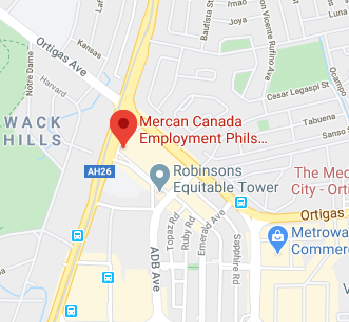Temporary foreign workers that require an LMIA can be divided into the following categories:
- Academic
- Agricultural
- In-home Caregiver
- High-Low wage worker
Academics
Â
Post-secondary educational institutions in Canada may employ foreign academics to help meet staffing and teaching needs and attract new knowledge and expertise to Canadian campuses. Examples of occupations that require an LMIA are, management, financial or administrative, etc.
Special hiring criteria have been developed by Employment and Social Development Canada (ESDC)/Service Canada and Immigration, Refugees and Citizenship Canada (IRCC) in cooperation with universities, degree-granting colleges, and unions representing Canadian academics. These criteria are designed to take into account the career development and employment of Canadian academics.
An academic is an individual who has:
- at least one postgraduate degree (following a Bachelor’s degree)
- earns the majority of their income from teaching or conducting research as employees at universities and university colleges in Canada.
Agricultural Workers
Â
The agricultural sector incorporates occupations that reflect a variety of skill levels, therefore there is a division of four different streams that foreign agricultural workers may fall under. Employers seeking to hire foreign workers, must choose one stream to apply under and ensure that all criteria are satisfied under the selected stream respectively.
- Seasonal Agricultural Worker Program (SAWP)
- TFWs must be from Mexico or certain Caribbean countries
- production must be included on the National Commodities List
- job duties must be related to on-farm primary agriculture
- positions can be in both high or low skilled occupations
- Agricultural Stream
- TFWs can be from any country
- production must be included on the National Commodities List
- job duties must be related to on-farm primary agriculture
- positions can be in both high or low skilled occupations
- Stream for Low-wage Positions
- production is not included on the National Commodity List
- employers can hire TFWs for any low-wage agricultural position
- Stream for High-wage Positions
- production is not included on the National Commodity List
- employers can hire TFWs for any high-wage agricultural position
NOTE: Employers must ensure they meet the requirements for the particular steam that they intend to apply under regardless of the stream that is chosen for the foreign worker.
In-home Caregiver
Changes to the live-in-caregiver program have resulted in the new caregiver program where families have the choice of hiring caregivers to live in-home or off residence.
Caregiver requirements:
- provide care on a full-time basis (minimum 30Â hours per week);
- work in the private household where the care is being provided; and
- meet the requirements set by Employment and Social Development Canada (ESDC)/Service Immigration, Refugees and Citizenship Canada (IRCC).
Categories of in-home caregiver:
- Caregivers for children
- Children under 18 years of age
Low-skilled positions:
- Home child care providers (nannies)– lower-skilled
- Babysitter
- Parent helpers
- Caregivers for people with high medical needs
- elderly persons, 65 years of age or over; or
- people with disabilities, a chronic or terminal illness.
This category could include both high and low skilled positions such as:
- Registered nurse or registered psychiatric nurse
- Licensed practical nurse
- Nurse aide or patient service associate
- Home support worker
Employers are subject to program requirements for both high and low wage streams, this includes:
- paying the prevailing wage for the occupation in the location where the work will be performed, and;
- conducting the necessary recruitment and advertisement requirements for the stream.
High-wage and Low-wage Positions
Employers are required to use the median hourly wage for both low and high skilled positions based on province/territory and location. The position being offered, wage, and location are determining factors as to whether an employer will need to apply for an LMIA under the stream for a high or low wage position.
Â
Low-wage position:
The Stream for Low-wage Positions allows employers to hire temporary foreign workers (TFW) for full-time positions (minimum of 30 hours of work/week) where the wage being offered is below the provincial/territorial median hourly wage where the job is located.
If employers offer a wage that is below the provincial/territorial median hourly wage they will be subject to all of the requirements of the Stream for Low-wage Positions.
Prevailing wages are determined by job requirements and duties of the associated job title defined in the National Occupational Classification (NOC). After employers have determined whether they are hiring a TFW for a low-wage position or a high-wage position, they must ensure that they meet all of the requirements for that stream such as meeting the prevailing wage requirement.
Â
High-wage Position:
Allows employers to hire temporary foreign workers (TFW) for full-time positions (minimum of 30 hours of work/week) where the wage being offered is at or above the provincial/territorial median hourly wage where the job is located.
Employers offering a wage to a TFW that is at or above the provincial/territorial median hourly wage will be subject to all of the requirements of the Stream for High-wage Positions.
Prevailing wages are determined by job requirements and duties of the associated job title defined in the National Occupational Classification (NOC). After employers have determined whether they are hiring a TFW for a high-wage position or a high-wage position, they must ensure that they meet all of the requirements for that stream such as meeting the prevailing wage requirement.
NOTE: There exist two special circumstances for employers/workers applying under either stream:
- Employers can be exempt from requiring a Labour Market Impact Assessment (LMIA)from Employment and Social Development Canada (ESDC)/Service Canada to hire a TFW; or
- TFWs can be exempt from requiring a work permitissued by Immigration, Refugees and Citizenship Canada (IRCC).
Ministerial Instruction – Refuse to process
The TFWP is refusing to process LMIA applications for 10 low-wage / lower-skilled occupations from employers that are included in the following sectors:
- Accommodation and Food services sector
- Retail trade sector
- Regions across Canada that have an unemployment rate of 6% or higher.
To be affected by this refusal to process, 3 criteria must be met.
Employers must be:
- seeking to hire TFWs in an economic region with an unemployment rateof 6% or higher (as defined by Statistics Canada);
- classified under the North American Industry Classification System (NAICS) as:
- Accommodation and food service(NAICSÂ 72); OR
- Retail trade(NAICSÂ 44-45)
- applying to hire TFWs for specific lower-skilled occupations, classified under the National Occupational Classification (NOC) as:
- Food counter attendants, kitchen helpers and related occupations(NOCÂ 6641);
- Light duty cleaners(NOCÂ 6661);
- Cashiers(NOÂ 6611);
- Grocery clerks and store shelf stockers(NOCÂ 6622);
- Construction trades helpers and labourers(NOCÂ 7611);
- Landscaping and grounds maintenance labourers(NOCÂ 8612);
- Other attendants in accommodation and travel(NOCÂ 6672);
- Janitors, caretakers and building superintendents(NOCÂ 6663);
- Specialized cleaners(NOCÂ 6662);
- Security guards and related occupations(NOCÂ 6651)



